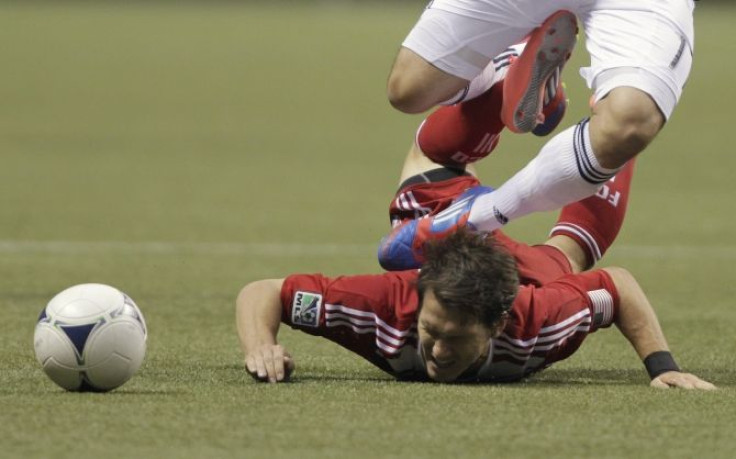Even Mild Traumatic Injury May Alter Brain Function

Even mild traumatic injuries like those resulting from sports or accidents can lead to abnormalities in brain that can last for days, says a new study published in The Journal of Neuroscience.
The study team found that after a mild brain injury, the way axons fire signals in brain changes even in areas where there was no direct physical injury. They say that disruptions may contribute to network dysfunction that happens after a mild injury to brain.
A study published in Neurology back in 1998 had suggested that brain activation in people who have had recent mild injury to brain differ from normal people. Their brain regions were activated differently during memory related tasks although there was no significant change in task performance.
“There is only a weak correlation between neuroimaging findings and neurocognitive outcome,” write Paul Hofman and colleagues in a study published in the American Journal of Neuroradiology. They found that people with brain injuries have abnormal brain scans but these do not necessarily reflect in how they perform at various activities. But the people with brain injuries do have a slower reaction time than those who haven’t had any injury to brain.
Research has shown that there is a significant risk of depression in people with mild traumatic brain injury (TBI).
In the latest study, the research team from Virginia Commonwealth University School of Medicine used animal model to see how the brain network reacts to signal activation following brain injury.
“These findings should help move the field forward by providing a unique bioimaging and electrophysiological approach to assess the evolving changes evoked by mild TBI and their potential therapeutic modulation,” said, John Povlishock, co-author of the study and director of the Commonwealth Center for the Study of Brain Injury.
Centers for Disease Control and Prevention (CDC) says that each year about 1.7 million people sustain a traumatic brain injury and about 75% of TBIs that occur each year are concussions or other forms of mild TBI.
“Researchers estimate that more than 300,000 U.S. veterans of the wars in Iraq and Afghanistan (20% of the 1.6 million) have sustained a mild traumatic brain injury (TBI), also known as concussion, with the majority going untreated,” writes Charles Hoge in an article in the New England Journal of Medicine.



























